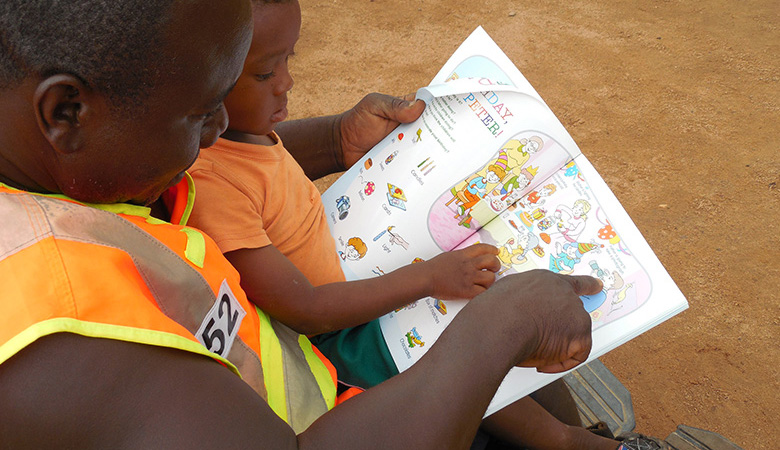
Challenge
The development of literacy skills through early experiences with books and stories is critically linked to children’s later success in learning to read. As Ghana strivesto increase national literacy levels, parents and communities are called upon to develop and nurture a culture of reading outside the classroom to support their children's learning in school and beyond.
The USAID Partnership for Education: Innovating Activity (Innovating) complemented other initiatives taking place in the classroom and encouraged all Ghanaians to build communities of reading throughout the country. Innovating worked closely with the Ministry of Education, Ghana Education Service, and local stakeholders to raise public awareness about the importance of reading and the benefits of developing good reading habits. The activity focused on the Greater Accra, Ashanti, Western, Volta, and Northern regions of Ghana.
Key Activities
EDC staff working on Innovating engaged in the following activities:
- Promoting public action to encourage good reading habits at home as a complement to the classroom through a variety of activities
- Conducting a Knowledge, Attitudes, and Practices (KAP) survey to capture information on parent/caregiver knowledge, attitudes, self-efficacy, and behaviors around home literacy and supporting their children in literacy activities outside of school
- Working with community organizations and volunteers to build a strong network of early-grade reading champions to promote reading
- Creating and broadcasting public service announcements (PSAs) in local languages promoting parents' roles in supporting literacy
- Developing a National Service Volunteer (NSV) handbook
Impact
- Institution of a Ghanaian NSV program as a catalyst for community action to support reading
- 108 reading clubs formed with the support of 65 community-based Literacy Champions
- 7,530 children reached through community-based Reading Time Activities
- Reached the public in 13 local languages with PSAs for literacy
Learn More
DURATION
FUNDED BY
PARTNERS
Ministry of Education, Ghana; Ghana Education Service; Participatory Development Associates